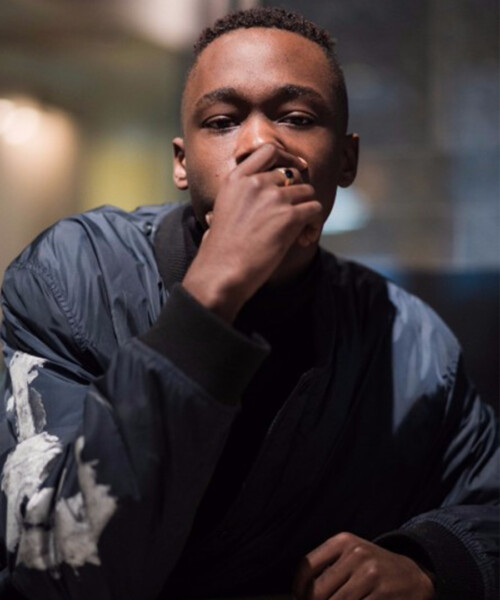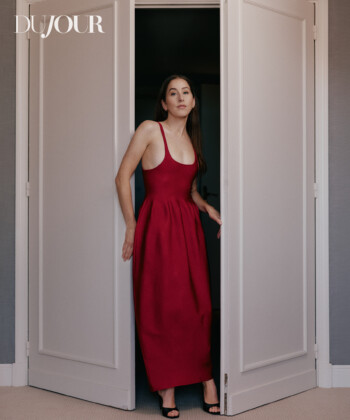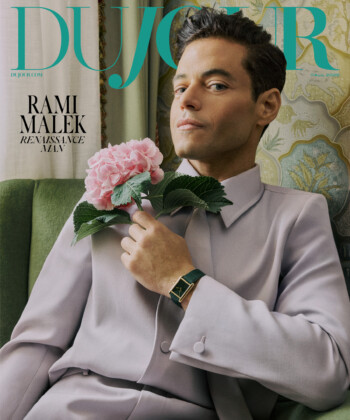Actor Ashton Sanders had a low-key 21st birthday with cupcakes and a “snippet” of a celebration, but to him, that’s more than enough. The real present was landing the role of a lifetime as Moonlight’s Chiron. The film highlights the character’s life in three stages, Sanders playing the middle stage when Chiron is 16 years old. The story follows his life as an African American male who is torn between the status quo of masculinity and his own identity. And on the heels of the role that propelled the young actor into a whirlwind of Oscar buzz and stardom in such a short amount of time, he and his team have begun talking strategy for the actor, following his recent decision to leave The Theatre School at DePaul University in Chicago.
The Los Angeles native is cool, calm and collected, but delving into Moonlight and how the project has inspired him and his craft makes it clear that there’s nothing lax about the film’s power. Here, we caught up with Sanders about his latest role, Moonlight’s message and what the future has in store for 2016’s breakout act.
What got you into acting?
It sounds cliché but acting kind of saved my life. When I started, acting was an outlet for emotional trauma, emotional stress; it was a way to leave my reality just for like, a second, to put myself into other people’s circumstances and to dive into their character. I was bullied growing up for being different and for being an “other” from elementary school through middle school. I joined an acting program in L.A. called Amazing Grace Conservatory, which is this all black acting conservatory founded by Wendy Raquel Robinson and Tracy Lamar Coley, R.I.P. So I kind of found my family through that and grew my artistry through that. I carry that with me everywhere I go. Immediately after my first semester at Amazing Grace I just felt free.

Ashton Sanders, Photo Credit: Jon Prosper
What was it like having to make a decision as big as leaving DePaul to pursue your career?
I had to take a year off to do Moonlight and I went back this year for maybe three weeks before I had to drop the program. It was definitely the first important decision I’ve had to make for myself because I knew how important school was for me but I had to take a step back and say, “whoa, I’d be going to school for the exact thing I’m doing right now.” I had talked to teachers that I had connected with, and they were really adamant about me staying at first but then we decided this was the best decision. My friends at DePaul were also all super supportive of my decision, so it was good to have that support.
What was your initial reaction to reading the Moonlight script?
Okay, well check this. What’s crazy is Moonlight is based on the play In Moonlight Black Boys Look Blue by Tarell Alvin McCraney, and when I was going to DePaul I was doing Tarell’s work a year before I even got this script. Tarell was also a student at the acting program I was in at DePaul University! So I had already known about him. I had fallen in love with The Brother/Sister Plays and other things that he’s written, so immediately when I saw that the story was based on a play by Tarell Alvin McCraney I lost my shit. I was like, “okay, this is about to be rad right off the bat.” I have never connected with a script – with the story and the images – like I did with this one. It was one of the most emotional reads I have ever had in my life. I will never forget it. Now every script I read I compare that feeling.
What was your process for preparing for this role?
I feel like acting is first and foremost recreating life, so I wanted to stay as real and true to the circumstances that Chiron had. From Little, to Chiron to Black, he had to grow up so fast. Chiron was something that resonated with me and this script was very close to home so I was able to pull from my own life experiences, but that wasn’t even half of the process. I had to put on his costume and heighten up my experiences to even relate to ten percent of Chiron’s story.
You’ve mentioned the importance of making and being in “smart” films. What, to you, makes Moonlight so smart?
The creativity of the project. From initially reading the remarkable script, to being on set and working with remarkable actors and cinematography – I think that every aspect of this film was well thought out and that’s not me being biased, even if I wasn’t in this film I would still be saying this. It’s a piece of art. So whether it makes you laugh or cry, or have a change of heart or you hate it, you had an emotional response and that response is going to curb the way you see life after this film.
This interview has been edited and condensed for clarity.
Main Image: Jon Prosper






































